9 – Letter to Mary Ann Smith from Frederick Smith, 24 Jan 1900
Click here for full transcript of letter
[FS/2/2/4/2/9] (1)
*[1] Ventners Sprint Camp 24 Janry 1900 Send me a nice Red & Green silk pocket h’chief[sic] mine are looking seedy I like a large one. Register it my pet.
[Salutation Redacted]
[[1]] It was only this morning that I sent you my last letter & yet here I am already writing another. I hope you are doing the same for me, for though you are not experiencing the stirring times we are, yet every detail of the life led by you [1 line redacted].
We have just learned that our night attack was successful, one General (Woodgate) being killed, further I learn we are doing well & that Buller expects a 7 day battle[,] this is our fifth day of it. The Relief of Ladysmith will live in History as per-manently[sic] as the Relief of Lucknow.[2] I would not miss if for any thing[sic] There is probably no man living outside our force which has seen five consecutive days fighting. We are lying under a hill out of shell fire our turn will come when we get the enemy on the move.
Jarvis & I have built a tent d’abris formed of our two waterproof sheets hung on a pole & supported at both ends here is a sketch of it [illustration][3], it is the envy & admiration of all, the poles are iron & taken from a neighbouring farmers gate & fence, held in position by wire stays. Of wire here theres hundreds of thousands of miles in this country nothing else is used for marking out & separating the different farms there is not such a thing as a hedge to be seen anywhere.
In this shelter we passed last night & its rain in absolute comfort, how those dear mites would love a tent of this sort I will put them up one the first summer I spend at home
28th Jan. Since I last wrote much had occurred a detail of it would fill a volume & [1 line redacted] the fact is that we have been again defeated & have had to retire or rather retreat. When I last wrote we were doing well & our spirits rose under cover of a night attack we seized a hill what was said to be the key of the position during the whole of that day the fellows on this hill
[[2]] were exposed to a perfect hell fire for 16 hours they stood it & finally at night it had to be evacuated, at once Buller made up his mind no to press the attack again & our retreat was only a matter of time. Such is the history of this disaster in a nut shell now for details.
You will remember that the disaster occurred on the 5th day of the battle at a time when we were doing well along a front not less than 12 miles in length. The hill which was captured during the night was a big one in the centre of the position with sides so steep that a man could only crawl up them with difficulty while to get horses or guns up was an impossibility. It was strange that the Boers did not put guns on this hill if the operation had been possible for their side, they had only a relatively small body of men on it & it is now said that we did exactly what they wanted viz seize the hill get established there & then their batteries hidden behind at a position where we could not possibly see could then knock us to pieces while we had not a gun with which to reply. If this really was their scheme it reflects the very greatest conduct of their Generals & very little on our own. We fell into the trap & got knocked to pieces. Strange that men who were not Generals should have remarked days before that the Boers had no guns on this hill which looked suspicious on the face of it. Well the hill was taken during the night attack the Lancashire Fusiliers leading. The first Boer sent who challenged us was an Englishman!! He called out who goes there? The Captain of the Lancashires told his men to lie down on their stomachs while he went forward alone & wh with this no further ado bayonetted[sic] the wretch in several places. It was on this regt[sic] the brunt of the attack fell & on Thornycroft’s lot. During the morning following the seizure the party was exposed to a heavy cross rifle fire, at about 2 pm the Boer Artillery opened on them & I never saw anything more dreadful their shrapnel shell fired from a long distance off burst over the heads of our unfortunate people in a veritable storm. I counted the shells bursting
[[3]] at the rate of seven a minute & we have since learned that it was a seven gun battery which wrought the havoc & with our own shrapnel captured with the guns at Colenso!! This hell fire lasted 21/2 hours, legs were torn off men blown to pieces, others scorched beyond recognition still they[sic] devoted band held out, at last a white flag was shown it is said by an officer of the Lancashires[sic] & the Boers advanced from their trenches to seize them. Up jumped Thorneycroft an immense man with a loud voice & said [“]No surrender while I am here! back[sic] to your trenches & the Boers slunk off as if they obeying an order from their own officer. The Colonel of the Lancashires[sic] was wounded & a prisoner. I knew him in the Soudan a very good fellow, the command fell on Thorneycroft & at night time all that was left of this devoted band came down the hill. I saw Thorneycroft yesterday & I took off my helmet & waved it as I met him, he lost 50% of his men & 11 officers one of the latter Petre (pronounced Peter) was a good friend of Jarvis’s & a Yeoman — poor Jarvis was much cut up. Lord Petre brother of the above is a Roman Catholic Bishop & Petre had exposed a wish that it anything happened to him [1 word illeg.] he would like to be buried by a R.C. Great delay being experienced in finding one his funeral was delayed & Jarvis by great good luck was able to be present[,] he was buried on the side of the road on our side of the Tugela & with the body was a bottle inside which was the name of the deceased date of death & other information in case the body is wished for at home. Jarvis also photo’ed[sic] the spot. Next day after the evacuation of the hill two parsons R.C & P the latter Gedge rode up to the hill under a red cross flag & with a party of body snatchers & buried the dead[.] I dont[sic] know the exact number but about 300 poor fellow[s] were left for ever on Spion Kop the name of the hill & when I took my last look at it yesterday morning I thought of all the sorrows that
[[4]] wretched hill would give to hundreds of homes in England.
While the dreaded shrapnel fire was going on that I just described, I tried to avoid looking at it knowing that each [1 word illeg.] meant death & mutilation to dozens, but one was fascinated & try to avoid it as I could, I constantly found my eyes turning on the fateful hill on which a hidden battery was pumping iron & fire.
When on the 6th day of the battle it was known that we had returned from the hill during the night a fearful gloom fell over us & soon we heard that Buller had given up the game. We still shelled their batteries & our infantry engaged them when ever[sic] they could, but we had orders to get off of at once our 17 miles of transport & get it over the river without delay in the mean time we keep off the attention of the Boers by shell fire. The transport took 11/2 days to get over the two bridges & this left the way open for us but then we knew that if we retired in the face of the enemy they would shell us & our rickety pontoon bridges (only 2) & simply wipe us out, so the retreat was keep[sic] a dead secret & the time was to be night but when no one knew. Our first stroke of luck came on the 8th day, it commenced to rain & the hills occupied by the Boers were covered with mist & at once the order went round that we were to leave at 6pm instead of 10 pm as arranged. Now you cannot conceive the road we had to pass over the first place was a drift over a small fordable stream with banks at his slope [illustration][4] through the rain the banks were so slippery that neither horse nor mule could get a foot hold. The carts of ammunition etc had to be pulled up by hand & all without making a noise for our watchful enemy was only 3 miles away & would have shelled us all night had he had the faintest notion what was on. By the time we got over this drift it was dark & still raining & we blundered along the road to the bridges over the Tugela. So dark was the night (Thank God) that I could
[FS/2/2/4/2/9] (2)
[[1]] only just see my horses ears!! Precautions were taken to keep camp fires going the whole time to deceive the Boers & gradually this force of over 20 000 men horses guns waggons[sic] conveyed from a front of several miles are to one point on the river where some boats with planks on them formed our only means of escape. No lights but of the dimmest description were allowed near the bridge in case the enemy fired — one single shell would have wrecked the proceedings, & as 20000 were jammed into a space smaller than Trafalgar Square each waiting their turn to walk over a bridge not so wide as our dining room, & without a rail or rope at the side, with a sif swift running stream below, it was no light hearted job, [2 lines redacted] — We had to wait our turn to crawl down the sandy bank of the river a false step on which would have landed one in the Tugela below — “Keep well to the right”. “Keep close to the left when you reach that lantern then follow the faint light which is the centre of the bridge” [4 lines redacted]. The crossing was jumpy, I led my horse, he could not see the river it was so dark, but he heard it & he felt the bridge rising up & down to the current, he snorted, an ammunition waggon[sic] in front of me conducted by some Irish soldiers halted on the bridge. I felt now that my horse was gone for a halt was fatal, but no it started once more & we were across, “Turn to the right & make for that lantern” we did so over stones the size of several paving stones, reaching the lantern the holder said “make for that light it is in the centre of the bridge”. Another bridge! what horror! (the Tugela at this point has two arms) this latter bridge was fairly easy & it was roped at the side, nothing but the fact that it had carried 17 miles of transport could
[[2]] have given one the needful confidence to have walked over it with a nervous horse[,] the guide led us to the edge of the bridge, & then left us with the in inky darkness. We led our horses. I got too much to the right & fell in a donga about 21/2 feet, crawled up the other side, fell in another, then a third, finally determined that I had come to much to the right, then made to the left & fared better, finally after a long pull arrived at the farm house we had shelled the day of our arrival, & here a big fire was burning & we gladly warmed ourselfes[sic] — I ought to say that by this time the ‘we’ was represented by the Farrier Major & a man leading my mule The regiment we had lost in the darkness but we stuck close to some other mounted corps until we got to the bridge, but after that we lost it, & so only three men & four animals crossed with of the us. At the Farm Yard I determined to stop until the moon rose at 3am it now being about 10pm, still raining, wind blowing, horses shivering, & men ditto[.] The ground was too wet to lie on so there was no help for it we stood for all three hours & longer, waiting for a moon we could never see from clouds, or for the early streak of dawn — at 4am we started walking up the hill from the river for you will readily understand that our position was a serious one if the Boers’ opened [1 word struck through, illeg.] fire for we were lying in a basin while they were on the hills above, we climbed up our side of the basin & by dawn no British Army could be seen, it had disappeared truly ‘over the hills’ but not ‘far away’.[5] We watched the Boers in the morning, before the wind rose they fired a few sniping shots at nothing, as it rose & the morning became clearer & nothing could be seen of the army which for eight days had been sitting below them, first one head then another appeared at the trenches & finally two men rode down the hill, they soon rode back when they found that we & the bridge had gone bag & baggage & that the most difficult & most successful retreat in the annals of the British army
[[3]] had been carried out. Try & imagine what it would be to take half a dozen men & horses over a bridge in pitch darkness & land them in safety some miles in the hills on the other side, & then think what it means to take a whole army!! It is the only bright spot in this campaign& it is a record. The morning broke as we stood in safety on the hills. They could have shelled us here, but we were in a position to reply & they contented them-selves[sic] with firing a shell at what was left of Thornycroft’s devoted band as they were the last to wind their way up the hill. [2 lines redacted]. We cooked some breakfast here & after an hour moved on to this our old camp Spearman’s Hill where we arrived at 12 noon after 18 hours continuous work, anxiety & bad weather, I lay on the ground with a tarpaulin for my head & slept in the sun for half an hour . Tents[,] an unknown luxury for days[,] were soon up, a good lunch, a sleep in the afternoon on a hospital stretcher (such a luxury) a good bath, clean clothes & to bed in Pyjamas was civilization indeed to one who had been in his clothes & on the bare ground for nine days. We soon forgot our troubles but not our defeat[.] to[sic] live as we are living now we can scarcely understand, though to any one introduced all at once to our present system would not regard it as civilization at all. [2 lines redacted].
The retreat was carried out in excellent spirit the men were cheery, not a grumble, cracking jokes & it even struck one that they thoroughly enjoyed it. Of course few except the officers recognised the extreme gravity of the situation & it was well they did not[.] I heard one man say in the inky darkness can anyone what regt[sic] is this ‘I dont[sic] know’ was the reply, well could can anyone tell me who I am? Another man was heard to say to a chum “Well this is the frostiest job I have been on, since I came to South Africa. Here we have been in the rain for hours without Cloaks ‘cause they
[[4]] have been are on the waggon[sic] & now when we’re wet to the skin, a blooming Staff Officer comes round & says you can lie down men for a short time if you like”. This has to be heard to be appreciated. It was a fine & inspiring sight to see our infantry which had been lying out night after night without cloaks on the hill side, decimated by bullets & shell fire, & retired during a wet & stormy night, march off the next morning with a fine swing & cheery confident bearing, carrying behind them on stretchers more of the men last wounded, or the wounded man hobbling along with his arms around the neck of two comrades. The sight of this infantry made one feel that we were not yet beaten & had plenty of life in us yet.
I saw Schofield (pronounced Skofield) ADC to Buller & a very good friend of MacKenzie’s[,] he had had a letter wire to say MacKenzie was dead having died of Typhoid at De Aar. Mrs Mackenzie was devoted to him & was is on her way out to S. A. to nurse him, she has a brother in the service who will meet her at Cape Town & break the news to her. Schofield told me that he really does not know what he will do without MacKenzie so great was the friendship between them. This war will be the means of breaking up many homes & bringing untold misery to thousands. It has drawn some few closer together who perhaps did not suspect the depth of their attachment, but such are in the minority, the misery, waste of life & loss of friends pre-dominates[sic]. Yet we must give their people the ‘knock’ Ladysmith as I told Sir EW[6] on [1 line illeg.] not through Natal but by the Orange Free State, A good victory then an advance on Bloemfontein would mean the relief of Kimberley & Ladysmith by drawing off the Free States. We must carry the war into their own country to make them feel it. Personally I have experienced all I wished to experience [3 lines redacted] & much I did not wish to experience two defeats & two retreats
[FS/2/2/4/2/9] (3)
[[1]] [5 lines redacted] but we must first whack the Boer.
Now my narrative is brought up to the time of our arrival here. I should explain that Spearman Hill is on the Tugela about 15 miles to the W of Colenso. I wrote to you from this place before going to the battle of the Upper Tugela & told you a drift known as Potgieters existed here across which troops could be passed. Now I gather that Buller is going to try & force the Potgieter position it is a very strong one, but we have an immense force of Artillery here & ought to crush the Boer fire — I believe we have also got some of the ‘Pow Pow’ guns I hope so, I should like the Boers to taste them. They actually had the cheek to ‘Pow’ ‘Pow’ our balloon the other day as it was quietly over-looking their position, one shell knocked off the helmet of the fellow in the car & put 5 holes in the balloon so he telephoned to be pulled down. Really I think this act of the Boers vulgar & inconsiderate!
One sad feature in this war is the way the people living in the country have suffered. All British sympathisers have had their farms ruined by the Boers[.] All Boer sympathisers have had their farms sacked & destroyed by the British. Not far from where I write is a pretty farm home surrounded by trees (all planted no others in the country) owned by a man name[d] Pretorious who has 5 sons the father & sons are all fighting for the Boers. Well this mans[sic] farm implements have been burned, his home sacked glass china & crockery have been smashed & thrown into the garden lace curtains torn down & used to keep flies off the horses. Iron bed steads broken up, feather beds ripped up & the contents emptied. I saw one room full of feathers bier[?] glasses & drawing room furniture pulverized. all[sic] I saw left was a first class harmonium & some music, the instrument I expect was too heavy & strong to smash up
[[2]] on the wall of the house was written “Shoot the traitor’ ‘Bayonet him’ etc[.] However the man is far away but his pretty home is a wreck. Close to his home is his cemetery & here lies the bones of his ancestors & of his daughter who married an Englishman named Spearman hence the name of this hill. It appears that every S.A. farm has its cemetery & this one can readily understand considering the distances people are apart. [Words redacted] I arrived here & in the afternoon of the next day in came our letters. I only got one everybody else two viz. 22nd & 29 Dec. I only got one from the 22nd so live in hopes of that of the 29th turning up besides this I got Punch[7] & Truth[8] for these very best thanks. Your letter was naturally tinged with anxiety but you cheer up at the end when you got my cable, & the language in which you have expressed your thanks for that cable [1 line redacted]. One result of my cable going from P’martizburg[sic] is that you have addressed my letter there, this was a mistake & may account for your letter of 29 Decbr not yet having come to hand[.] I am not at PMb[sic] nor likely to be, address your letters to the Regt. Natal Field Force South Africa that will find me. Should we whack Paul[9] is the next fight & relieve Ladysmith I do not think the war will be further prosecuted in Natal everything will have to be done from the Free State side in which case the 13th may go back to Durban ship to East London & then by rail to the O.F.S. but this is anticipating events. You say Matthews is a prisoner, but only in so far as he is shut up at L’smith[sic] he is not in the Boer hands. Newsome I saw was convalescent, I did not know he was wounded. Rutherford coming out is news. I tried to send you a cable yeste the day I returned here & again yesterday but they would not take it. I got however a man in the 14 Hussars to take it to Frere & I hope it left there this morning for well do I know your anxiety. It troubled me greatly until I could get it off
[No Valediction]
(Please note that work on this transcript is ongoing. Users are advised to study the electronic images of this document where possible) (http://rcvsvethistory.org/archive-collection/fs-working-papers/)
[1] Annotations on Header ‘Keep’
[2] The Siege of Lucknow lasted from May 30 to November 27, 1857, during the Indian Rebellion of 1857.
[3] Illustration of a tent by Smith
[4] Illustration by Smith of the stream he is discussing
[5] Here Smith could be referring to ‘Over the Hills and Far Away’ a traditional Scottish song (circa 17th century).
[6] Field Marshal Sir Henry Evelyn Wood (1838-1919)
[7] ‘Punch’ was a British weekly magazine of humour and satire established in 1841 by Henry Mayhew and engraver Ebenezer Landells.
[8] ‘Truth’ was a British periodical publication founded in 1877 by the diplomat and Liberal politician Henry Labouchère.Truth was known for its exposures of many kinds of frauds, and was at the centre of several civil lawsuits.
[9] Paul Kruger (1825-1904), President of the South African Republic

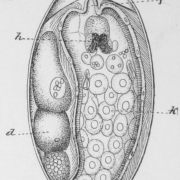
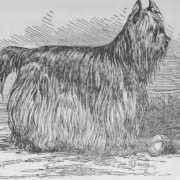
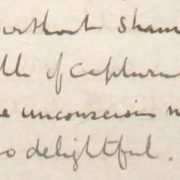
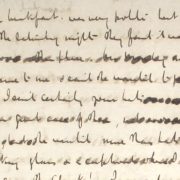
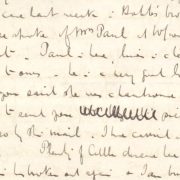
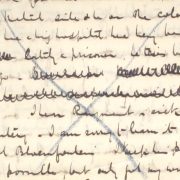
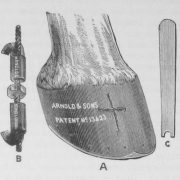
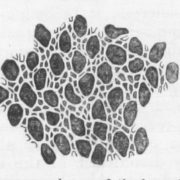


Leave a Reply
Want to join the discussion?Feel free to contribute!